Sleeping Beauty…
Young orphan African baby elephants raised and cared for in orphanages seem to prefer sleeping, similar to us humans, in a safe, warm and comfy spot. They enjoy a soft bed of straw or grass to lie on and a multi-coloured blanket to keep them warm when the night-time and their own body temperature drops – without Mom’s body to keep them warm and her milk to keep them perfectly, ideally, tip-top. Little Khanyisa falls asleep sometimes while her carer is in the room, whispering goodnight or singing soothingly, surrounded by warmth and love, with Lammie her companion sheep alongside her.
We have noticed over time that the babies in the orphanage get on average about 7-8 hours sleep at the age of one year, but about 12-13 hours when still about three months. Considerably more than a baby in the wild, especially while they are going through their rehabilitation and integration.
Still, she stirs… like an adult and wild elephant, waking here and there much more than we humans would want to.
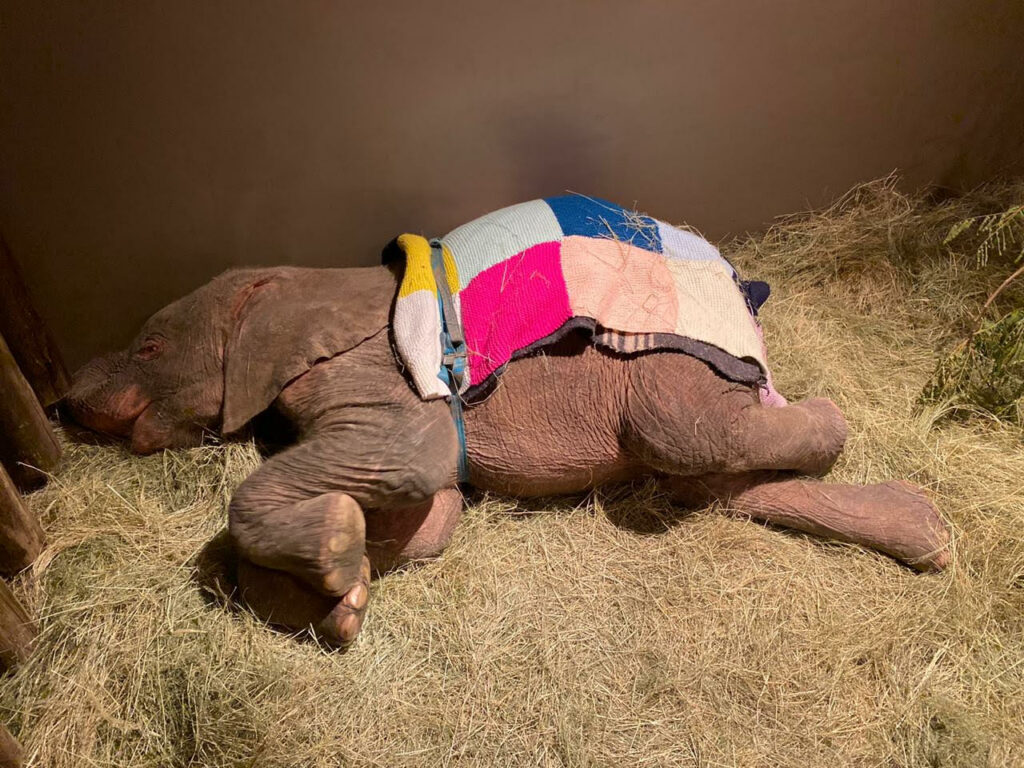
Being the largest land mammal in the world means that the African elephant has few natural predators. They don’t need to be constantly alert, but they do need to eat and search for food frequently.
Wild African elephants spend most of their days either eating or looking for food and drinking or taking mud and sand baths and this leaves them with very little time for naps. While another of Africa’s giants, the rhino, takes a siesta during the hottest part of the day and sleeps deeply and for up to eight hours a day, the African elephant works straight through.
Unlike us, they don’t require eight hours of uninterrupted sleep to be able to function the next day.
When they do elephant-nap, they lean against a tree or large mound or simply rest their trunk on the ground and doze. The disadvantage to their immense size is that, similar to horses, if they lie down for too long the weight of their own body can prevent blood flow to certain locations. Their weight while lying down can cause reperfusion injury or pressure wounds which you can see on some of the Jabulani herd and is very common in bigger animals. This is thought to be a key reason that elephants sleep for only short periods of time and why they don’t lie down frequently when getting their shut-eye.
Tokwe in particular developed pressure wounds from her pregnancy as she spent more time lying down during this stage, 13 years ago.
Elephants’ six inch thick skulls make measuring the brain’s electrical activity rather difficult, but it is thought that a reason for elephants needing to lie down to sleep from time to time is for REM sleep to occur, for the benefit of this deep sleep on creating their renowned remarkable memories. REM (rapid eye movement) sleep is thought to help with the consolidation of memories but further studies in elephants, humans and possible fruit-fly are underway.
It’s interesting to sometimes hear the Jabulani herd breathing deeply while fast asleep, lying down.
Yawning is another sleep-related behaviour that is observed but not fully understood.
Many vertebrates yawn in response to witnessing a pack members open-mouthed gape. This is called intraspecific contagious yawning and not only do African elephants yawn in unison with their herd-mates but like chimpanzees and dogs, they have been recorded yawning in response to a yawn from a different species (interspecific contagious yawning), in particular, humans. So, perhaps the next time you’re around a sleepy pachyderm and she yawns you might, yourself, feel that inexplicable urge. You can read more about this phenomenon here and here.
For now Khanyisa is still spending her sleeping hours in the nursery with Lammie and her blanket as the cold weather creates a need for us to be much more cautious of her health and wellness. She sleeps like a human baby with interrupted sleeping patterns but the long walks in the wild all day with the herd certainly make her sleep about an hour extra. While Lundi or an allomother elephant could provide her with natural elephant warmth in the Jabulani herd stables, her health has been intermittently affected by diarrhea and we need to ensure that she is as strong as Sebakwe!
With her intermittent diarrhea, we have dedicated much time to scrutinising her and keeping a close eye on her, as the best thing for an elephant is still its mother’s milk. While supplementing her milk with a tried, tested and tweaked formula, we have made sure to weigh her frequently and keep track on her health, which has been easy to do with the help of our team as we are well-equipped in the orphanage with the necessary equipment. You can follow Khanyisa’s Weight Tracker here >
Sweet dreams, sweet Sunshine!
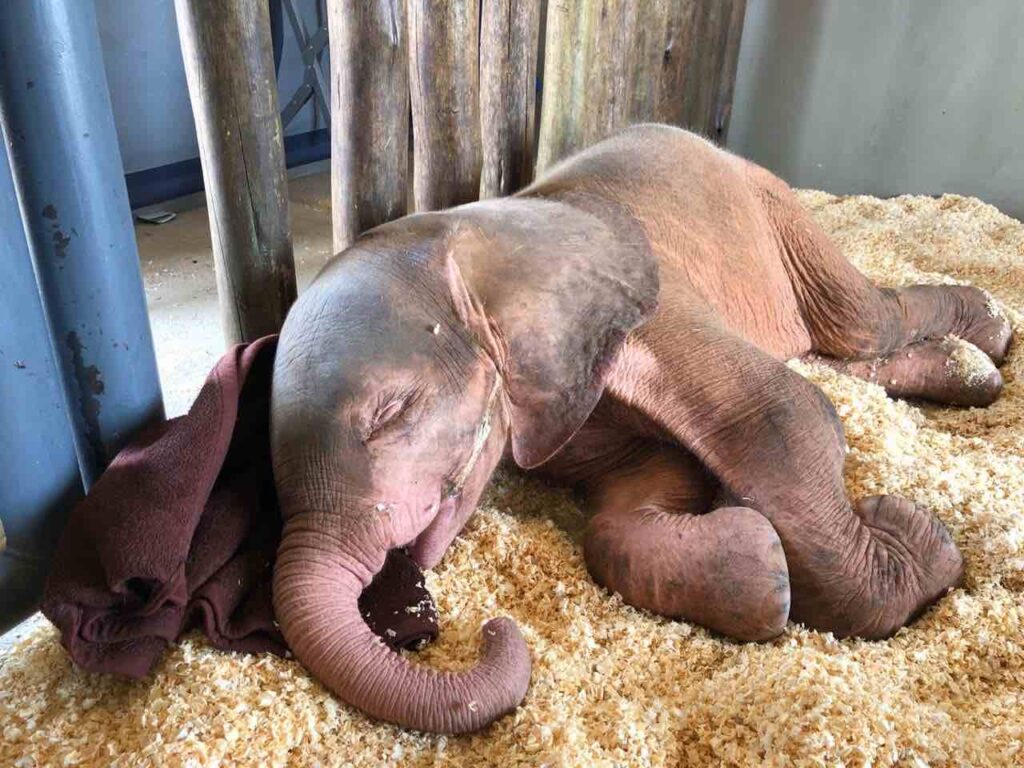




 Comment
Comment
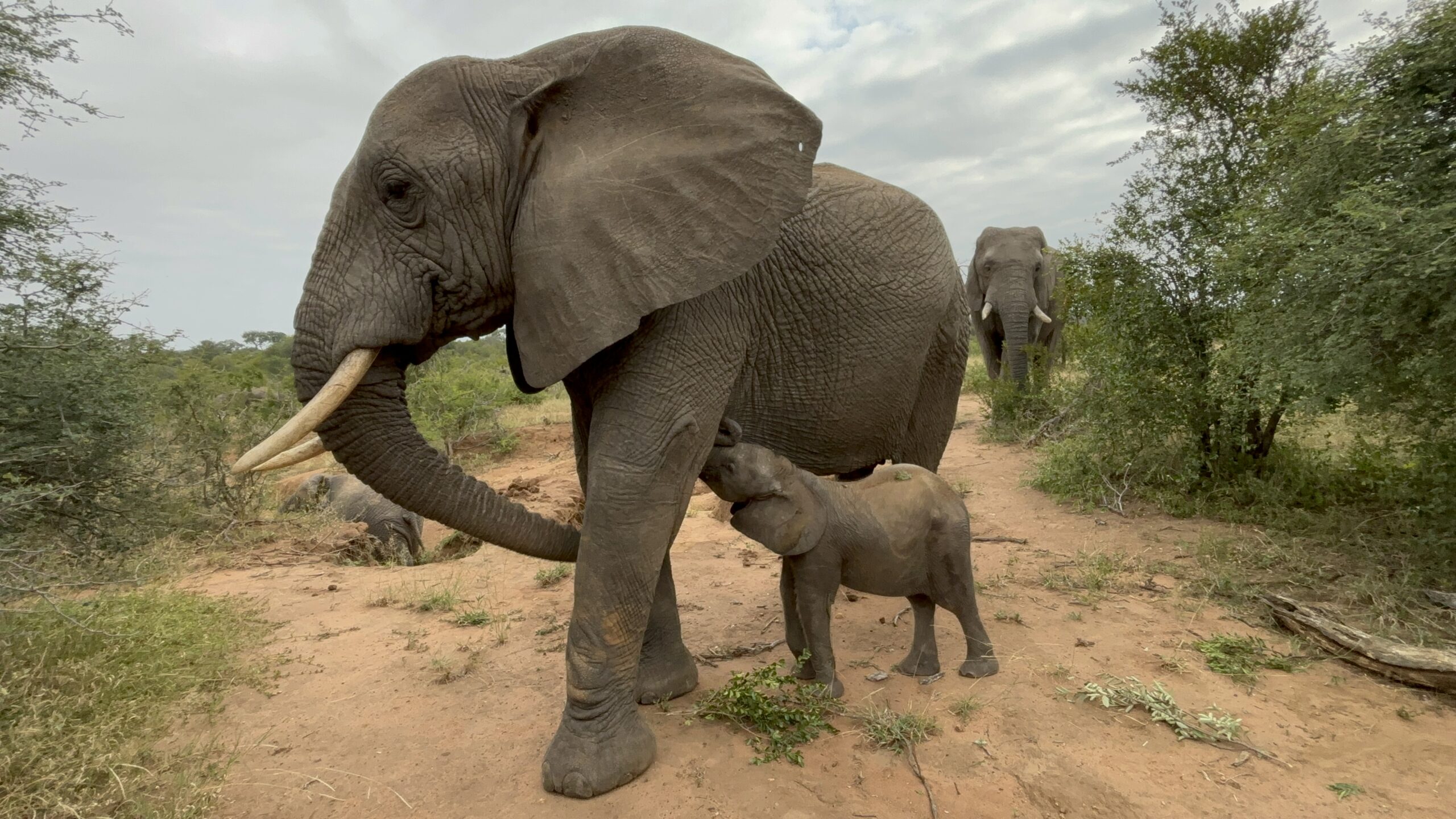
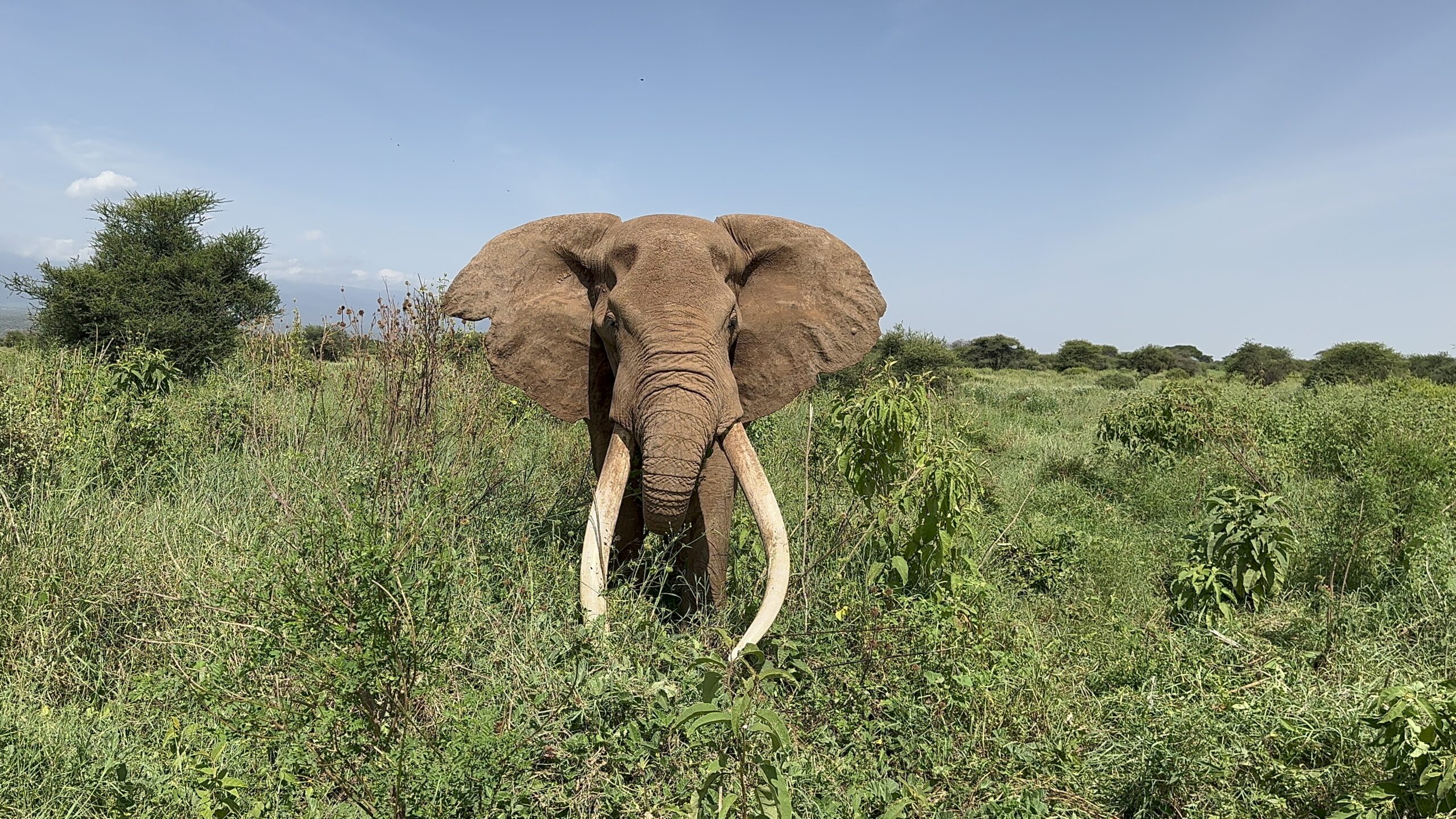
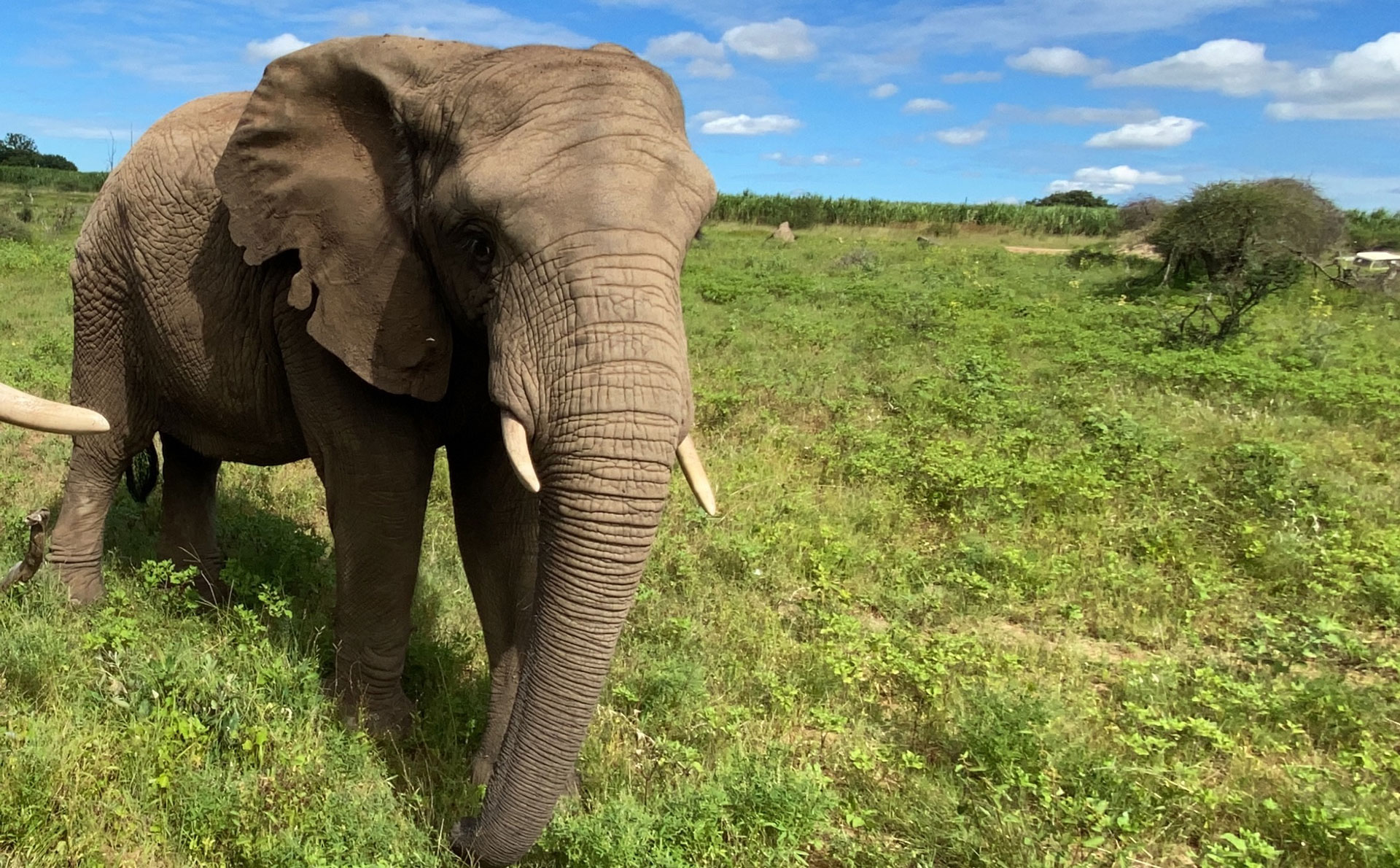



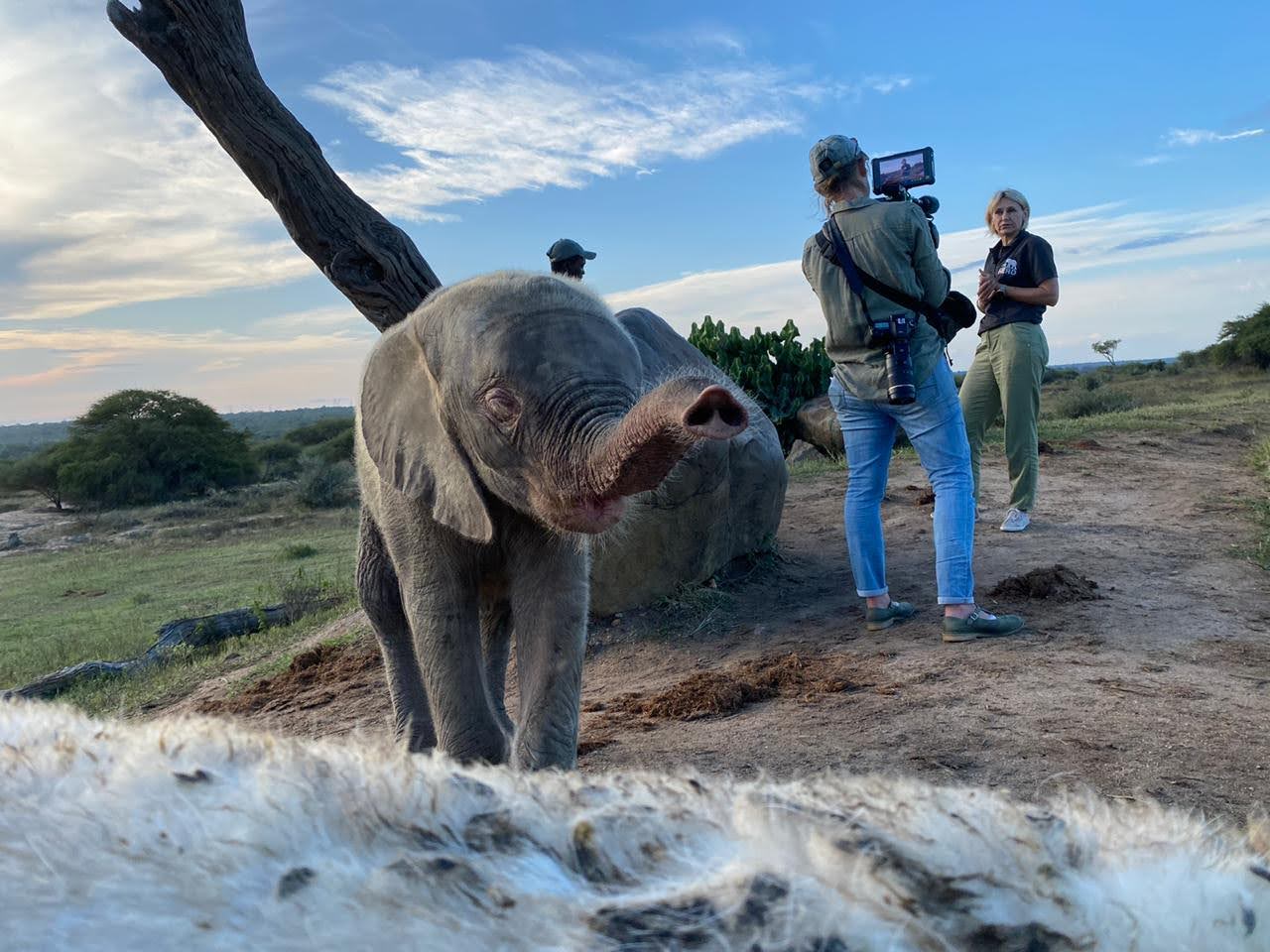
Lets save these elephants but the way they sleep is so unique who agrees with me,